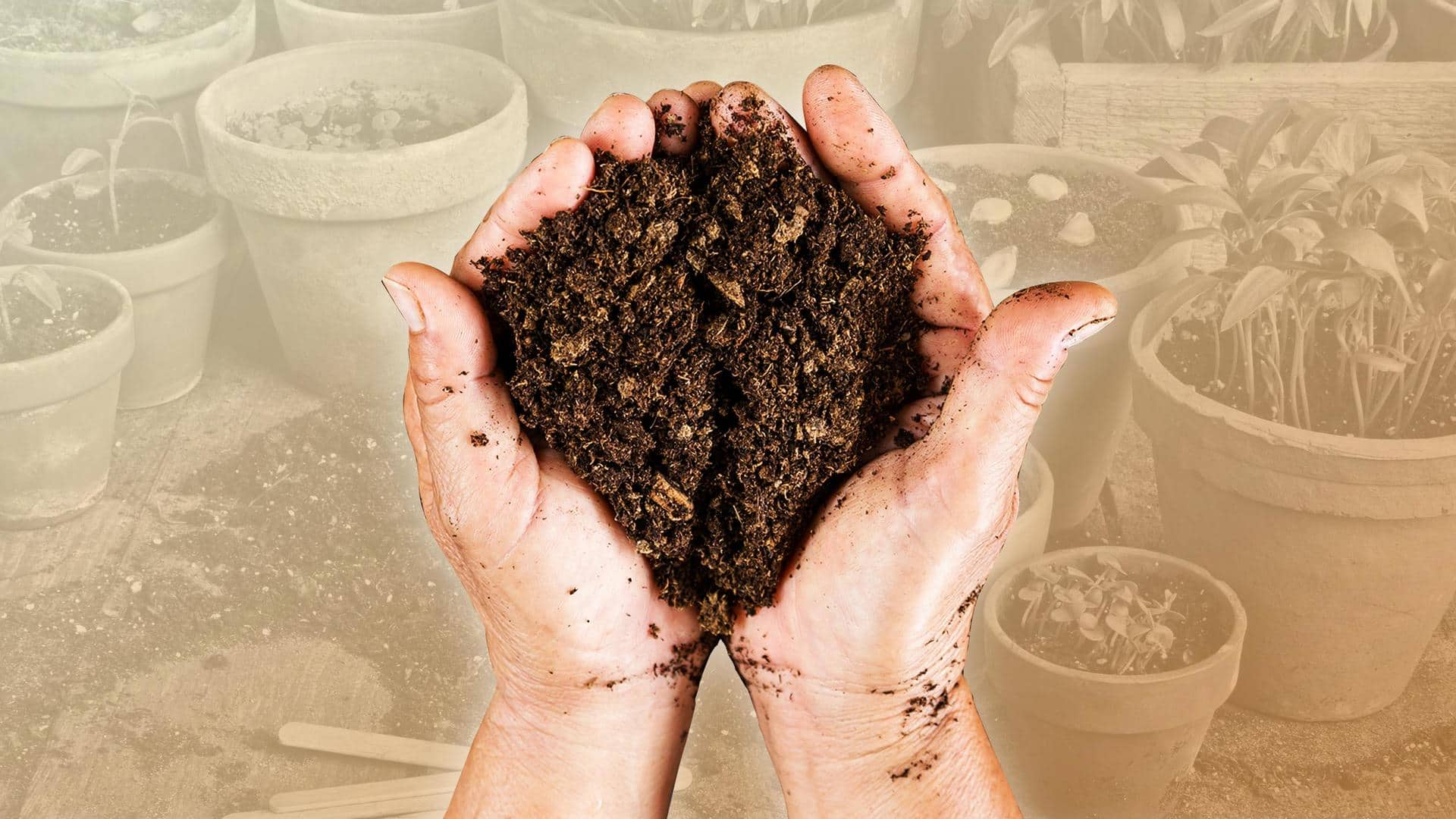
Revitalize your garden soil with these 5 simple techniques
What's the story
Regardless of the type of soil you have, it is possible to transform it into healthy garden soil with some effort and patience. Improving soil quality is an ongoing process that requires regular maintenance and replenishment with natural garden fertilizers. Follow these five easy and relatively quick techniques to improve your garden soil and make it more nutrient-rich for your plants.
Organic fertilizer
Add compost
Compost is a great way to improve soil health by adding organic matter, which can improve soil structure and nutrient content. Composting involves breaking down organic materials like food scraps, yard waste, and animal manure into a nutrient-rich, soil-like substance. You can also do home composting and let vegetable and fruit peelings, egg shells, etc. decompose and turn them into compost.
Protection
Mulch the soil
Mulching involves placing a layer of organic material such as leaves, straw, or wood chips on the surface of the soil to help retain moisture and regulate soil temperature. By retaining moisture, mulch can help reduce the frequency of watering your plants, which can be especially beneficial during hot, dry weather. Additionally, mulches break down over time, adding nutrients to the soil.
Aeration
Prevent compaction
When soil becomes hard and compacted, it creates a dense layer that water and nutrients cannot penetrate easily. As a result, the soil dries up and becomes nutrient-poor, making it difficult for plants to grow and thrive. To prevent your soil from compaction, dig your soil from time to time. Digging makes the soil porous, improves drainage, and facilitates the spreading out of roots.
Re-fertilize
Grow cover crops
Cover crops are plants produced for the purpose of protecting and enriching the soil rather than for harvest. They are planted in areas of the garden that are not currently in use or between growing seasons. Clover, rye, buckwheat, and alfalfa are some popular cover crops. Its waste decomposes swiftly after maturation, replenishing the soil with organic materials.
Manure
Add aged animal manure
Aged manure is usually at least six months old and has had time to break down and decompose. Fresh manure is not added because they contain high levels of nitrogen and have the risk of introducing pathogens to the soil. You can even buy animal droppings of chickens, cows, and goats, which are all nutrient-rich and can be used to improve soil structure.